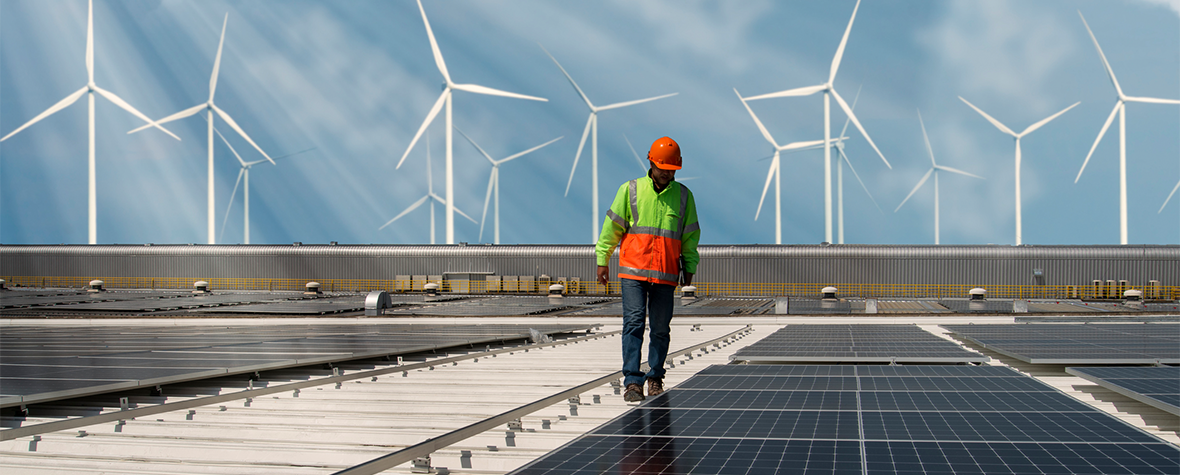MCE’s Empowering Electrification series explores the challenges and opportunities of electrification. This series will cover valuable insights into the current state of electrification efforts and the technological advancements driving the transition to clean energy. By the end of this series, you’ll have a better understanding of our electrifying world and feel empowered to make changes toward a carbon-free future.
Electrification simply means transitioning things that usually run on fossil fuels to run on electricity. This change can help make our world cleaner and healthier. Let’s dive into what electrification is, why it’s important, and how it affects our daily lives.
Understanding Electrification
Imagine the things you use every day, such as cars, heaters, cooktops, and more. Many of these things use fossil fuels, which come from the earth and release pollution when burned. Electrification means switching these devices to use electricity.
For example:
- Electric Cars: Instead of using gasoline, EVs run on batteries that you can charge at home or at charging stations.
- Induction Cooktops: These appliances use electricity instead of gas to cook your food.
- Heat Pump Space and Water Heaters: These warm your home or heat your water without using polluting fossil fuels.
By switching gas-powered appliances to electricity, we can take advantage of clean energy from the sun, wind and water, to ditch dirty fossil fuels.
Why is electrification important?
Electrification is important for several reasons:
- Renewable Energy: Electricity can come from renewable sources like wind and solar power, which don’t run out and don’t pollute the environment.
- Pollution Reduction: Burning fossil fuels releases harmful gases into the air, which contribute to air pollution and climate change. Using electricity from clean sources can help reduce this pollution.
- Healthier Environment: Less pollution means cleaner air and water, which is better for our health and the planet.
- Energy Efficiency: Electric devices are often more efficient than those that run on fossil fuels, meaning they use less energy to do the same job. That’s a win for our planet and your wallet.
How can I electrify my home?
With so many benefits, now is the time to ask yourself, “how can I electrify?”
Choose an EV
EVs don’t need gasoline and produce no tailpipe emissions, making them much cleaner for the environment. The fuel is less than a gas car, EVs have little to no maintenance costs, and they look pretty cool! With California’s race to electrify, the number of charging stations available to you is growing daily.
Replace Aging Home Appliances
Heat pump water and space heating can be much more efficient than traditional gas appliances. It can improve the comfort of your home, making it cooler in the summer and warmer in the winter. Induction cooktops are also efficient electric appliances. Easier to clean than a gas range, the cooktops are used by the best chefs because they cook faster and more evenly while reducing the risk of injury from coming into contact with a hot cooktop – especially important if little ones are around!
What are the challenges of electrification?
While electrification has many benefits, switching to electric presents some challenges:
- Infrastructure: We need more EV charging stations and better electrical grids to support the increased use of electricity. The good news is that MCE is putting in the work to make charging stations accessible.
- Cost: Switching to EVs can be expensive up front, although you often save money in the long run. MCE’s EV rebate program can help you get into an EV today.
Heat pump water and space heaters may also be more expensive to operate than gas appliances. The best way to lower costs is to perform energy efficiency upgrades as well to offset increased costs from new electric appliances. - Energy Sources: It’s important to ensure that the electricity comes from renewable sources. With MCE, you can go 100% renewable and ensure that your carbon footprint is as small as possible.
- Outages: Unlike gas appliances, electric appliances don’t work during a power outage. Consider getting a battery back-up system to help keep the power on during outages and reduce your monthly bill.
Lastly, remember that electrifying your home can take time. Plan ahead and replace appliances before they fail.
Blog by Jenna Tenney




